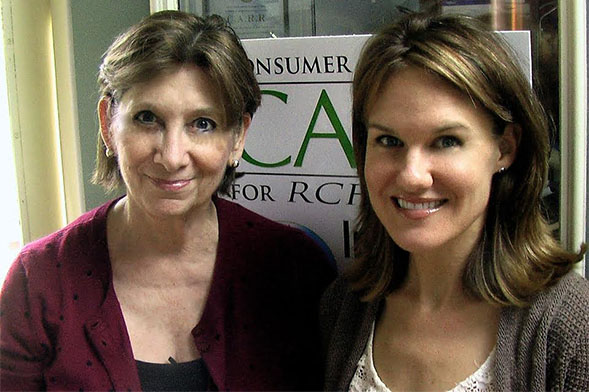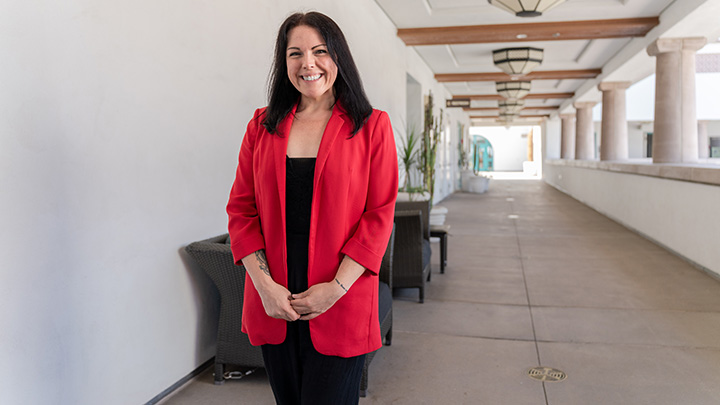Heroines for the Elderly
Chris Murphy and Christina Selder protect California seniors and their families from elder abuse.

A pair of San Diego State alumnae has won national acclaim as champions of California’s senior citizens.
Chris Murphy, ’11, and Christina Selder, ’08, are co-founders of Consumer Advocates for RCFE Reform (CARR), a non-profit group that monitors and researches California’s assisted living industry using the state’s public records. CARR leverages the information to advocate for residents and their families. (RCFE is an acronym for Residential Care Facilities for the Elderly.)
The CARR website, built with the help of SDSU student interns, contains PDF-file records of inspections, complaints and enforcement actions recorded since 2000 against facilities in San Diego and eight other counties. It is the only site of its kind in the state and will eventually include records from all California counties.
In 2014, Murphy and Selder received the First Amendment Coalition’s Free Speech and Open Government Award for their work, making CARR the first non-profit to receive this honor.
“We’re unique,” said Murphy. “We are providing to consumers what the state has been unable to provide — online access to the public records on assisted living facilities. In addition, we strive to provide context and support via FAQs, helpful links and community events.
Working with legislators
Murphy and Selder have also worked with state legislators to draft laws protecting seniors in residential care facilities. A bill introduced by Assembly Speaker Toni Atkins and signed by Governor Jerry Brown last August requires assisted living facilities in California to purchase liability insurance.
“Previously more than 85 percent of facilities elected to forego insurance, and court judgements against them were meaningless,” Murphy said.
This year, a second legislative effort by Murphy and Selder, took aim at unscrupulous practitioners in the field.
If passed, the law sponsored by Assembly Member Cheryl Brown, will require the California Department of Social Services to publish the names of people “excluded from owning, operating and/or working inside any licensed care facility” as a result of behavior “that endangered the health or safety of an elder.”
A legal battle
Both Selder and Murphy come to the field of gerontology with personal stories that drive their commitment.
Raised in rural Louisiana by several generations of relatives, Selder was taught that families took responsibility for their elders. She majored in economics and international business at Louisiana State University before coming to SDSU to study gerontology, which was, she said, “a passion all along.”
Murphy was a contracts administrator in the aerospace industry when her mother was diagnosed with stage 4 cancer and entered an assisted living facility after surgery.
“She survived the cancer, but not the facility,” said Murphy, who waged a two-year legal battle with the owners and vowed afterward to work for reform.
False marketing
These days, aging is a “hot” issue, Selder noted, but senior advocates need reliable data to push for meaningful reform and families need unbiased information to make safe placement decisions.
CARR’s efforts “connect the dots” for the public, matching resident care with resident risk inside facilities. With each year, Selder and Murphy continue to expand their consumer focused-website. Seniors and/or their families may also call to discuss what questions to ask when touring a residential care facility and how to initiate and navigate avenues of accountability.
“Here in San Diego and across the nation, residential care is marketed as resort, luxury-style living,” Murphy said. “But as seniors become more dependent, they care less about the fancy decor and more about the one-on-one care and assistance they need to maintain their quality of life.”



